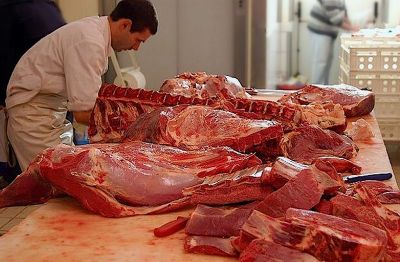In modern times, consumers are demanding more choice and more information about their food products. It is more important than ever that regulators have the means to rapidly test the composition of meat and processed meat products for additives.
Backed by EU funding, the 'Authentication of meat products using ambient surface mass spectrometry' (AUTHENTIMEAT) project investigated two new techniques for the rapid and accurate analysis of meat composition.
The techniques are both types of mass spectrometry, which can rapidly identify proteins or protein fragments (called peptides) in a meat sample. These can be compared to known peptide profiles for a specific type of meat (e.g. chicken or beef) to identify contaminants or alterations.
Both techniques were tested on standard mixtures of proteins, as well as enzyme-digested and dried meat samples. Researchers found that both techniques were effective, but that one of them provided more reliable and more accurate data.
This technique, known as liquid extraction surface analysis mass spectrometry (LESA-MS), was tested on cattle, pig, horse, chicken and turkey. From this testing, AUTHENTIMEAT identified 23 heat-stable peptide markers for accurate identification of the different animal species, even after cooking.
Researchers then validated these newly identified markers on 21 processed meat products with both known and unknown ingredients. The LESA-MS technique could identify meat composition in these products down to 5 % of the total weight.
AUTHENTIMEAT has identified and tested a new technique for rapid and accurate analysis of meat products, which is simpler and faster than current approaches. This research may be useful to regulators, policymakers and consumers alike.
 EN
EN  CS
CS DE
DE ES
ES FR
FR HU
HU IT
IT PL
PL PT
PT РУ
РУ SK
SK TR
TR УК
УК AR
AR 中文
中文







